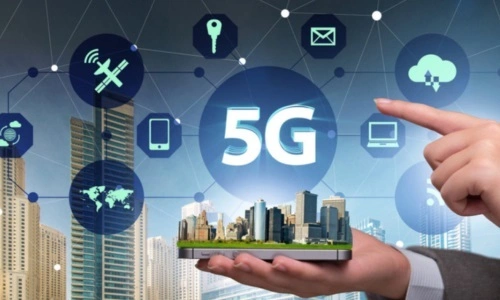The telecommunications and digital landscape is thriving with 5G, which refers to the fifth generation of wireless cellular networks. Its launch in India is revolutionising connectivity and communication. From streaming and gaming to everyday tasks like mobile recharge UPI bill payments, 5G can transform it all with ultra-fast internet and innovative digital platforms.
5G is poised to usher in a new era of online experiences, automation, enhanced network capacity, and improved personal expenditure management. This article shall explore what this new technology means for bill payments and recharges.
What is 5G Technology?

The fifth-generation cellular network technology, or 5G, is a mobile network technology that succeeds 4G, providing lightning-fast internet speeds with low latency and massive connectivity. Here are some of the key changes introduced by 5G technology.
- Unprecedented speeds with up to 10 times faster uploads and downloads. So now you don’t need to worry about mobile recharge UPI bill payment
- Lower latency, which means the delay between sending and receiving data is minimised, and response times are nearly instant.
- You can have multiple devices connected to the internet without any hassle or slowdowns.
- It enables easier integration with advanced technologies, such as artificial intelligence and the Internet of Things.
How Does 5G Revolutionise Recharges and Bill Payments?
5G offers various applications and is set to revolutionise the entire digital landscape. Recharges and bill payments are also getting revolutionised by these transformations. Here are some ways 5G is bringing about these changes.
- Accessibility: You can harness the power of 5G from anywhere at any time, from your phone. Discover the mobile recharge Jio plans that offer true 5G and transform your phone into a connectivity powerhouse.
- Speed: With 5G, you can complete all your recharge and bill payment transactions ultra-fast, avoiding lags and timeouts. You can complete numerous transactions within seconds, even during peak hours.
- Low Failure: Slow data can lead to payment failures or system hangs. Latency issues can cause the amount to be debited from your account while failing to record the credit to the service provider’s receipt. 5G can eliminate such unnecessary worries.
- Availability: This technology is poised to bring the benefits of strong internet connections to the most remote and far-flung areas. Mobile recharge BSNL apps are also set to expand their coverage of 5G services, allowing more people to gain access.
- Improved User Experience: Users can enjoy smoother navigation in payment apps and a more seamless bill payment process due to faster and more reliable internet.
The Road Ahead
5G is generating significant excitement, but it has yet to reach its full potential. This technology can accomplish much. As 5G becomes more widespread, our approach to tasks like mobile recharges and bill payments will evolve, offering faster, smarter, and more personalised experiences.
Soon, apps may offer additional benefits, including voice commands and AI-powered automation, to help streamline your processes. The groundwork is being established now; mobile recharge UPI bill payments are about to become more efficient and intuitive.
Conclusion
With India’s adoption of 5G, daily digital transactions will transform, introducing enhanced speed, intelligence, and simplicity to even the most basic payments. As the network expands, opportunities will also increase, streamlining daily tasks to be simpler, safer, and nearly effortless. This transformation not only enhances convenience but also fosters innovation in the digital landscape.
Bajaj Finserv is a platform that simplifies payments and recharges for you. Whether you are looking for a mobile recharge Jio, BSNL or any other major telecom service provider, this is a one-stop solution to enjoy and pay for their 5G services easily.
Hina Abbasi is Editor and a passionate sports and entertainment content writer at WinnersMaze.com. Hina’s expertise spans across a wide range of sports, and interest in many TV shows allowing her to deliver insightful analysis and compelling stories that resonate with readers.

